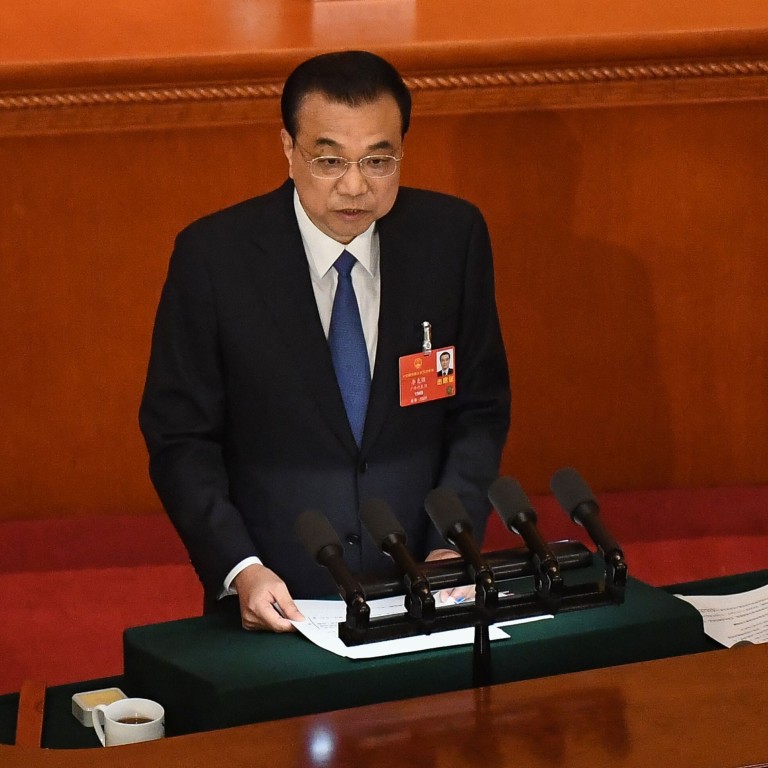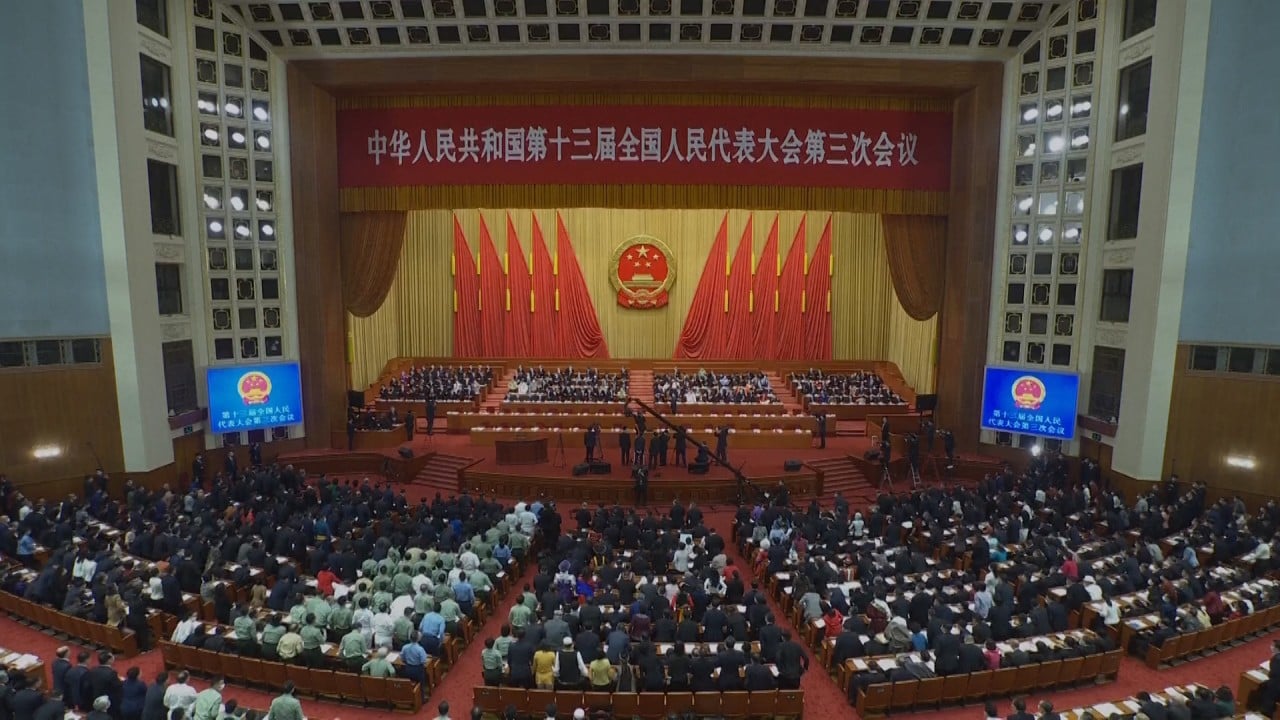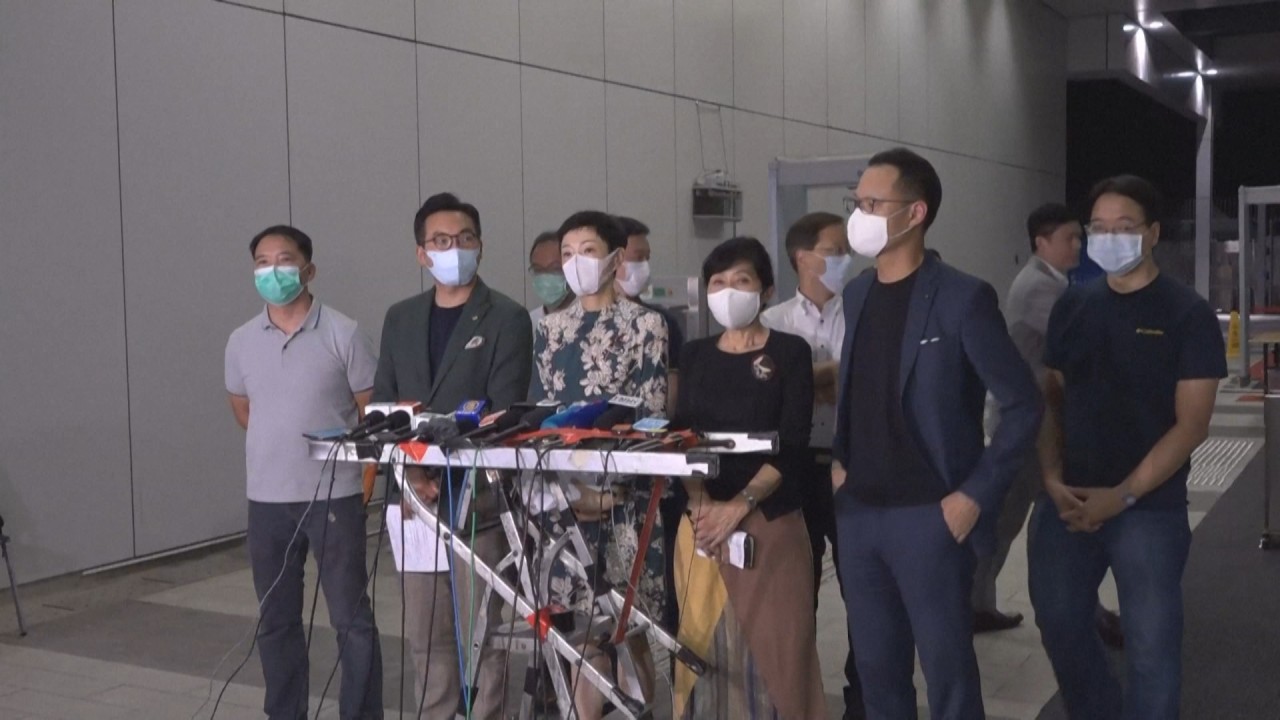
Two Sessions 2020: Beijing sets sights on Hong Kong legal system as part of national security move
- Chinese Premier Li Keqiang omits Basic Law from work report for first time since taking office in 2013
- Central government to ‘establish sound legal system and enforcement mechanism’ in two special administrative regions
But Li made no reference to the Basic Law – the city’s mini-constitution – in his work report, the first time he has not done so since he took office in 2013.
Last year, the premier made it clear that Beijing would “act in strict compliance with China’s constitution and the Basic Laws of the Hong Kong and Macau special administrative regions”. That phrase was omitted this time around.
The opening of the annual session also saw the central government submit a resolution to enable the apex of its top legislative body, the Standing Committee of the NPC, to craft and pass a new national security law tailor-made for Hong Kong.

03:49
Hong Kong democrats bash national security law from China’s two sessions, US also voices concern
Li has in the past dedicated a paragraph in his concluding remarks, to Hong Kong and Macau – China’s two special administrative regions (SARs) that were established after they were returned from British and Portuguese rule in 1997 and 1999 respectively.
This year, he said: “We will comprehensively and accurately implement ‘one country, two systems’, under which the people of Hong Kong govern Hong Kong, and the people of Macau govern Macau, with a high degree of autonomy.
“We will establish sound legal systems and enforcement mechanisms for safeguarding national security in the two SARs, and see that the governments of the two regions fulfil their constitutional responsibilities.”
Explainer | What you need to know about the national security law for Hong Kong
Li also said the central government would continue to support the two cities in developing their economies, improving people’s livelihoods, integration into national development plans, and maintaining their long-term prosperity and stability.
In March last year, Li said in his work report that Hong Kong and Macau would develop and progress together with mainland China as they seized opportunities under the nation’s trade and integration plans.
Under the act, Washington will make an assessment on whether Hong Kong remains suitably autonomous from China, a prerequisite for extending the city’s preferential US trading and investment privileges.

00:54
Hong Kong pro-democracy lawmakers bash China’s new national security law proposal
Warning earlier that it would be a tough report, Secretary of State Mike Pompeo on Wednesday launched a verbal salvo against China and expressed Washington’s concerns on Hong Kong.
Pompeo, a former CIA director, called out the recent arrests of leading Hong Kong activists such as Democratic Party founder Martin Lee, and entrepreneur and media owner Jimmy Lai, describing how they had been “hauled into court”.
“We urge Beijing to honour its commitments and obligations in the Sino-British Joint Declaration,” said State Department spokeswoman Morgan Ortagus in a statement, referring to the bilateral treaty signed in 1984 that guarantees a “high degree of autonomy” for Hong Kong until at least 2047.
Help us understand what you are interested in so that we can improve SCMP and provide a better experience for you. We would like to invite you to take this five-minute survey on how you engage with SCMP and the news.

